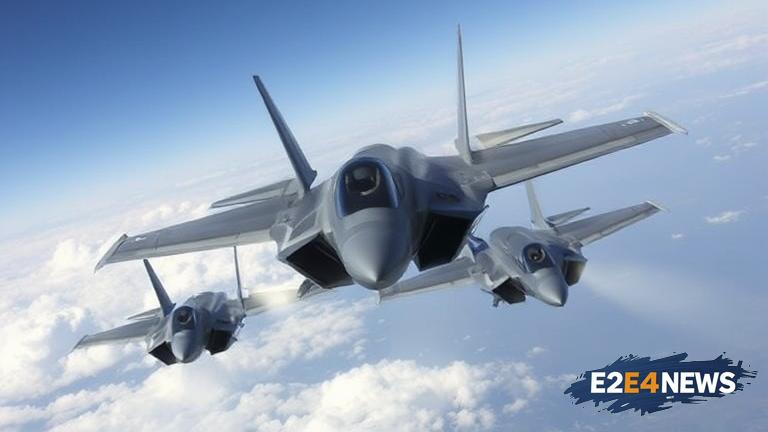A recently leaked secret report has shed light on Turkey’s deep-seated fears regarding the military capabilities of its neighboring countries, particularly Israel and Greece. The report highlights the significant threat posed by Israel’s F-35 fighter jets and Greece’s Rafale jets to Turkey’s national security. According to the report, Turkey’s military is increasingly concerned about the advanced technology and capabilities of these aircraft, which could potentially give Israel and Greece a significant advantage in the region. The F-35, in particular, is considered a game-changer in modern warfare, with its stealth capabilities and advanced avionics making it nearly undetectable. Turkey’s military is worried that Israel’s F-35s could easily penetrate Turkish airspace and strike at key military installations. Similarly, Greece’s Rafale jets are also a cause for concern, with their advanced radar and missile systems making them a formidable opponent. The report also notes that Turkey’s own military modernization efforts have been hindered by US sanctions, which have limited its access to advanced technology. As a result, Turkey has been forced to rely on Russian-made military equipment, which is seen as inferior to the F-35 and Rafale. The report’s findings have significant implications for regional security, with Turkey’s vulnerability to Israeli and Greek military might potentially destabilizing the entire region. The report also highlights the complex web of alliances and rivalries in the region, with Turkey’s relationships with Israel and Greece being particularly strained. In recent years, Turkey has been at odds with both countries over a range of issues, including territorial disputes and energy exploration. The report’s revelations are likely to further escalate tensions in the region, with Turkey potentially seeking to bolster its military capabilities in response to the perceived threat. However, such a move could also provoke a response from Israel and Greece, potentially leading to a regional arms race. The report’s findings also have significant implications for NATO, with Turkey’s membership in the alliance potentially being called into question. The report notes that Turkey’s military modernization efforts have been hindered by its increasingly close relationship with Russia, which is seen as a rival to NATO. As a result, there are concerns that Turkey’s loyalty to the alliance may be wavering, potentially creating a rift within NATO. The report’s revelations are likely to be closely watched by regional observers, who will be keen to see how Turkey responds to the perceived threat from Israel and Greece. In the short term, it is likely that Turkey will seek to bolster its military capabilities, potentially through increased cooperation with Russia. However, such a move could also have significant long-term implications, potentially destabilizing the entire region. The report’s findings also highlight the need for increased diplomacy and cooperation in the region, with all parties working together to reduce tensions and prevent conflict. Ultimately, the report’s revelations serve as a reminder of the complex and volatile nature of regional security, with even the smallest miscalculation potentially having significant consequences. The report’s findings are a wake-up call for regional leaders, who must work together to address the underlying causes of tension and prevent conflict. By doing so, they can help to create a more stable and secure region, where all countries can thrive. The report’s revelations are a significant development in the region, and will likely be closely watched by observers in the coming weeks and months. As the situation continues to unfold, it is likely that there will be further developments and revelations, potentially shedding more light on the complex web of alliances and rivalries in the region. The report’s findings are a reminder that regional security is a complex and multifaceted issue, requiring careful diplomacy and cooperation to resolve. By working together, regional leaders can help to create a more stable and secure region, where all countries can prosper. The report’s revelations are a significant step towards greater understanding and cooperation in the region, and will likely be seen as a major development in the ongoing efforts to promote regional security. The report’s findings are a call to action for regional leaders, who must work together to address the underlying causes of tension and prevent conflict. By doing so, they can help to create a more stable and secure region, where all countries can thrive. The report’s revelations are a significant development in the region, and will likely be closely watched by observers in the coming weeks and months. As the situation continues to unfold, it is likely that there will be further developments and revelations, potentially shedding more light on the complex web of alliances and rivalries in the region.





